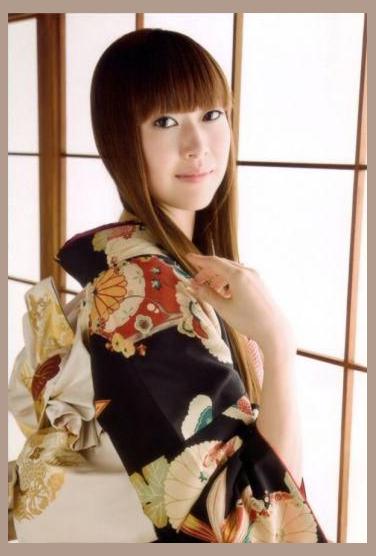 Mamiko Noto
Mamiko Noto
Mamiko Noto: A Tapestry of Melodies and Controversies
In the realm of Japanese music, Mamiko Noto stands as an enigma, her haunting vocals and experimental compositions captivating audiences and stirring controversy alike. From humble beginnings to bold artistic visions, her musical journey has been marked by both challenges and triumphs.
Early Life and Influences
Born on November 28, 1970, Mamiko Noto's formative years were shaped by a diverse musical landscape. Her father, a classical music enthusiast, instilled in her a deep appreciation for the intricacies of Western compositions. Simultaneously, her mother's love for traditional Japanese folk songs exposed her to the evocative melodies and lyrical depth of her homeland.
Debut and Rise to Fame
Noto's music career commenced in the early 1990s with the release of her debut album, "Mazin". The album's ethereal and experimental sound garnered critical acclaim, establishing her as an artist with a unique and compelling voice. Her subsequent releases, including "Aoi" and "Kokua", cemented her status as a rising star in the Japanese music scene.
Controversies and Artistic Vision
Noto's unconventional approach to music has often sparked controversy. Her lyrics, which frequently delve into themes of loss, loneliness, and the human condition, have been met with both praise and criticism. Critics have accused her of being overly morbid and pessimistic, while others have hailed her honesty and emotional depth.
Undeterred by these controversies, Noto has remained true to her artistic vision. She has embraced the experimental side of music, incorporating elements of classical, folk, and electronic into her compositions. Her daring experimentation has resulted in a distinctive sound that transcends genre boundaries.
Discography
Mamiko Noto's discography spans over three decades and encompasses a diverse range of albums, singles, and collaborations. Notable works include:
* "Aizome" (1996): A haunting and atmospheric album that showcases Noto's ethereal vocals and experimental compositions.
* "Shinsen" (2001): A collaboration with musician Makoto Kawamoto, featuring a blend of traditional Japanese instruments and electronic elements.
* "Urubu" (2005): A dark and introspective album that explores themes of loss and grief.
* "Senya" (2012): A collaborative album with musician Fumiya Tanaka, characterized by its improvisational and ethereal nature.
Members and Collaborations
Throughout her career, Mamiko Noto has collaborated with a diverse group of musicians, including Makoto Kawamoto, Fumiya Tanaka, and Yukihiro Takahashi. She has also performed as a member of the group "Ghost", which includes musicians such as Takashi Miike and Merzbow.
Legacy
Mamiko Noto's music continues to captivate audiences around the world. Her ethereal vocals, experimental compositions, and willingness to explore the darker recesses of the human condition have cemented her status as an enigmatic and influential artist in the Japanese music landscape. Her music continues to inspire and challenge listeners, leaving an enduring legacy that transcends time and controversy.
In the realm of Japanese music, Mamiko Noto stands as an enigma, her haunting vocals and experimental compositions captivating audiences and stirring controversy alike. From humble beginnings to bold artistic visions, her musical journey has been marked by both challenges and triumphs.
Early Life and Influences
Born on November 28, 1970, Mamiko Noto's formative years were shaped by a diverse musical landscape. Her father, a classical music enthusiast, instilled in her a deep appreciation for the intricacies of Western compositions. Simultaneously, her mother's love for traditional Japanese folk songs exposed her to the evocative melodies and lyrical depth of her homeland.
Debut and Rise to Fame
Noto's music career commenced in the early 1990s with the release of her debut album, "Mazin". The album's ethereal and experimental sound garnered critical acclaim, establishing her as an artist with a unique and compelling voice. Her subsequent releases, including "Aoi" and "Kokua", cemented her status as a rising star in the Japanese music scene.
Controversies and Artistic Vision
Noto's unconventional approach to music has often sparked controversy. Her lyrics, which frequently delve into themes of loss, loneliness, and the human condition, have been met with both praise and criticism. Critics have accused her of being overly morbid and pessimistic, while others have hailed her honesty and emotional depth.
Undeterred by these controversies, Noto has remained true to her artistic vision. She has embraced the experimental side of music, incorporating elements of classical, folk, and electronic into her compositions. Her daring experimentation has resulted in a distinctive sound that transcends genre boundaries.
Discography
Mamiko Noto's discography spans over three decades and encompasses a diverse range of albums, singles, and collaborations. Notable works include:
* "Aizome" (1996): A haunting and atmospheric album that showcases Noto's ethereal vocals and experimental compositions.
* "Shinsen" (2001): A collaboration with musician Makoto Kawamoto, featuring a blend of traditional Japanese instruments and electronic elements.
* "Urubu" (2005): A dark and introspective album that explores themes of loss and grief.
* "Senya" (2012): A collaborative album with musician Fumiya Tanaka, characterized by its improvisational and ethereal nature.
Members and Collaborations
Throughout her career, Mamiko Noto has collaborated with a diverse group of musicians, including Makoto Kawamoto, Fumiya Tanaka, and Yukihiro Takahashi. She has also performed as a member of the group "Ghost", which includes musicians such as Takashi Miike and Merzbow.
Legacy
Mamiko Noto's music continues to captivate audiences around the world. Her ethereal vocals, experimental compositions, and willingness to explore the darker recesses of the human condition have cemented her status as an enigmatic and influential artist in the Japanese music landscape. Her music continues to inspire and challenge listeners, leaving an enduring legacy that transcends time and controversy.